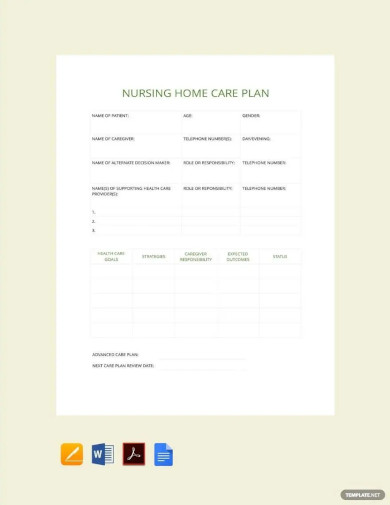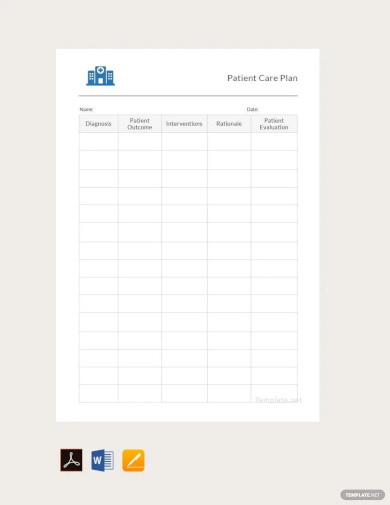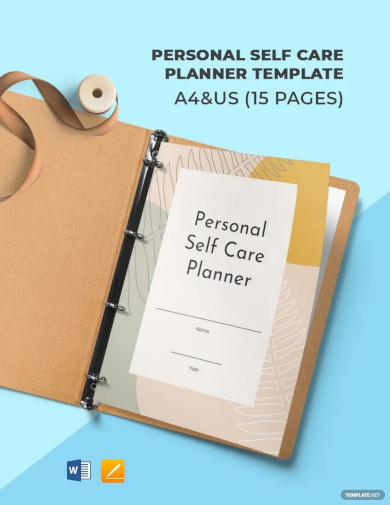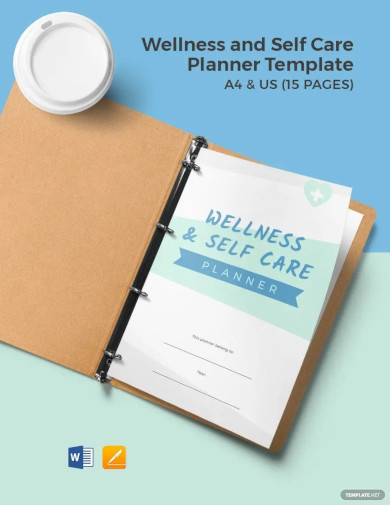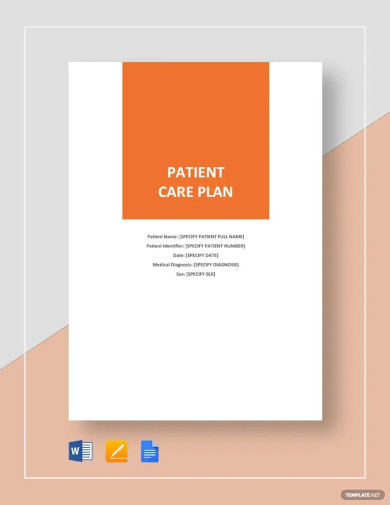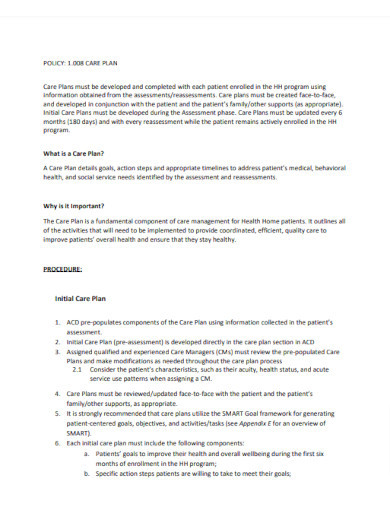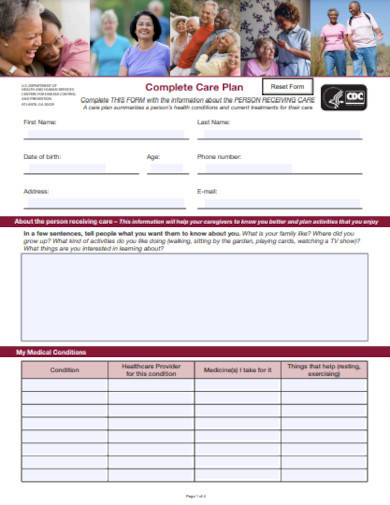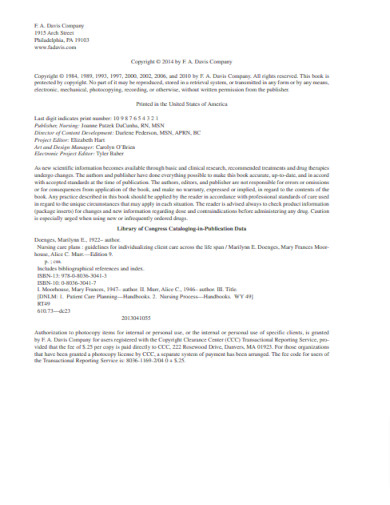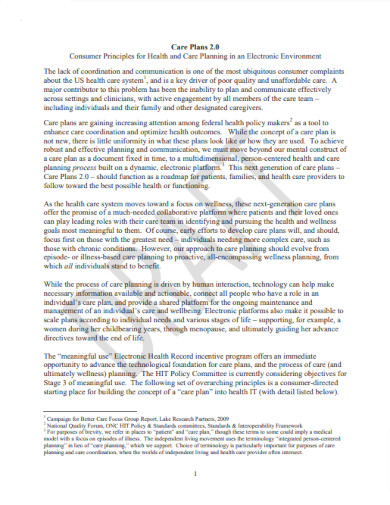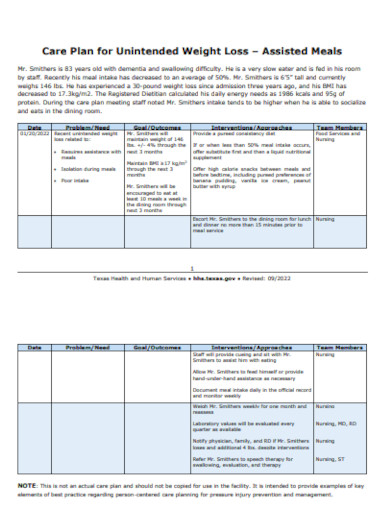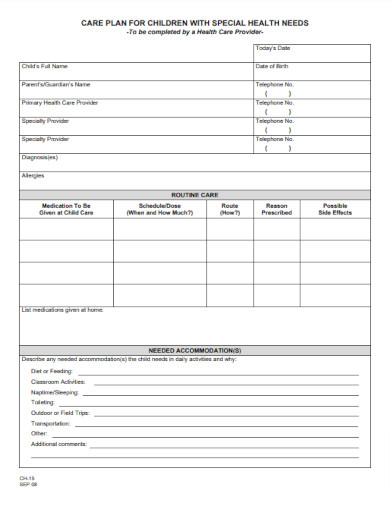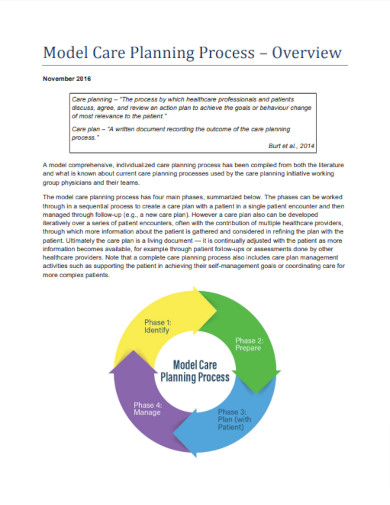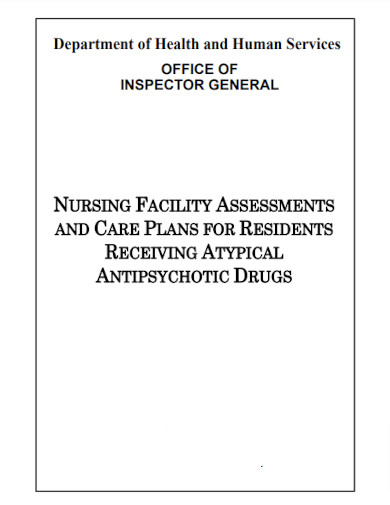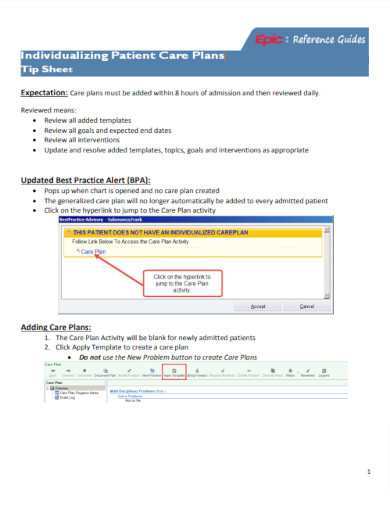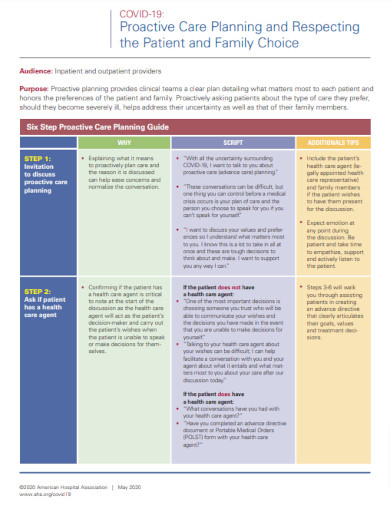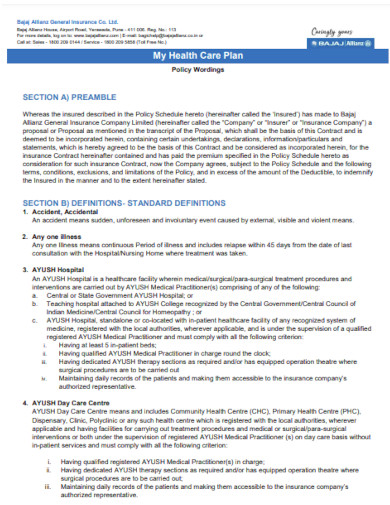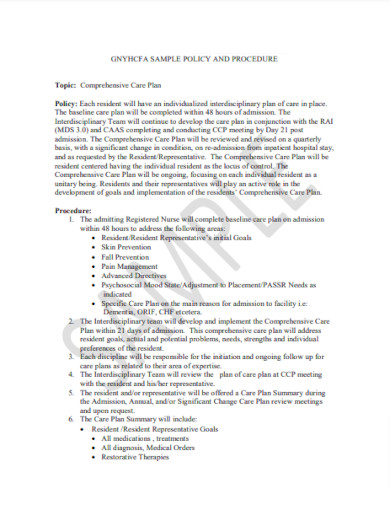15+ Care Plan Examples to Download
A Care Plan is a vital tool for individuals who want to manage their health and well-being. It outlines the steps needed to achieve wellness goals and provides guidance on how to address health issues. Whether it’s an emergency care plan for unexpected health issues, a wellness action plan to maintain a healthy lifestyle, or a healthcare plan for managing chronic conditions, Care Plans can be tailored to fit the unique needs of each individual. In this article, we will explore different examples of Care Plans and how they can help individuals take control of their health and well-being.
bb_toc content=”][/bb_toc]
Nursing Home Care Plan Template
Patient Care Plan Template
Personal Self Care Planner Template
Wellness and Self Care Planner Template
Patient Care Plan
Initial Care Plan
Complete Care Plan Form
Nursing Care Plans
Consumer Care Planning
Care Plan for Unintended Weight Loss
Care Plan for Children
Model Care Planning Process
Advance Care Plan
Care Plans for Residents
Care Plan Workflow
COVID-19 Proactive Care Plan
My Health Care Plan
Comprehensive Care Plan
What is a Care Plan?
A Care Plan is a comprehensive document that outlines an individual’s health goals and strategies for achieving them. It is developed by healthcare professionals, in collaboration with the patient, and takes into consideration their unique health needs, medical history, and lifestyle. The purpose of a Care Plan is to provide a roadmap for achieving optimal health and to guide healthcare providers in delivering effective care. There are different types of Care Plans, including healthcare plans, emergency care plans, wellness action plans, wellness recovery plans, and emotional health plans. Each plan is tailored to address specific health needs and goals.
How to Choose the Best Care Plan
Choosing the Best Care Plan for your needs can be a daunting task, but with a little guidance, you can select a plan that will help you achieve your health goals. Here are some steps you can take to choose the best Care Plan:
Step 1: Identify your health goals
Before choosing a Care Plan, it’s essential to identify what you want to achieve. Are you looking to manage a chronic condition? Do you want to maintain a healthy lifestyle? Or do you need a plan for unexpected health emergencies? Once you have identified your health goals, you can choose a Care Plan that addresses those needs.
Step 2: Consider your medical history and lifestyle
When choosing a Care Plan, it’s important to consider your medical history and lifestyle. Your medical history will help determine the type of care you need, while your lifestyle will determine the strategies you can realistically follow to achieve your health goals.
Step 3: Seek professional guidance
Healthcare professionals, such as doctors and nurses, can provide valuable guidance in selecting the best Care Plan for your needs. They can assess your health status, provide expert advice, and recommend strategies for achieving your health goals.
Step 4: Evaluate the benefits and costs
When choosing a Care Plan, it’s important to evaluate the benefits and costs. Look for a plan that provides the services you need, has a proven track record of success, and fits within your budget.
Step 5: Review and adjust your Care Plan regularly
Once you have chosen a Care Plan, it’s important to review and adjust it regularly to ensure that it continues to meet your changing health needs.
FAQs
What are the different types of Care Plans?
There are different types of Care Plans, including healthcare plans, emergency care plans, wellness action plans, wellness recovery plans, and emotional health plans. Each plan is tailored to address specific health needs and goals.
How often should a Care Plan be reviewed and updated?
A Care Plan should be reviewed and updated regularly to ensure that it continues to meet the patient’s changing health needs. The frequency of reviews and updates will depend on the individual’s health status and the type of Care Plan they have.
How can I ensure that my Care Plan is effective?
To ensure that your Care Plan is effective, it’s important to follow the strategies outlined in the plan and to communicate regularly with your healthcare providers. You should also track your progress toward your health goals and make adjustments to your Care Plan as needed. Additionally, you can seek professional guidance from your healthcare providers to ensure that your Care Plan remains effective in addressing your changing health needs.
In conclusion, a Care Plan is an essential tool for managing one’s health and well-being. It is a personalized document that guides individuals in achieving their health goals, whether it’s managing chronic conditions or maintaining a healthy lifestyle. With the help of healthcare professionals, individuals can create different types of Care Plans that are tailored to their unique health needs. By following the strategies outlined in their Care Plan, individuals can take control of their health and improve their overall quality of life. So whether it’s a healthcare plan, an emergency care plan, a wellness action plan, a wellness recovery plan, or an emotional health plan, a Care Plan is a valuable resource for anyone who wants to prioritize their health and well-being.



